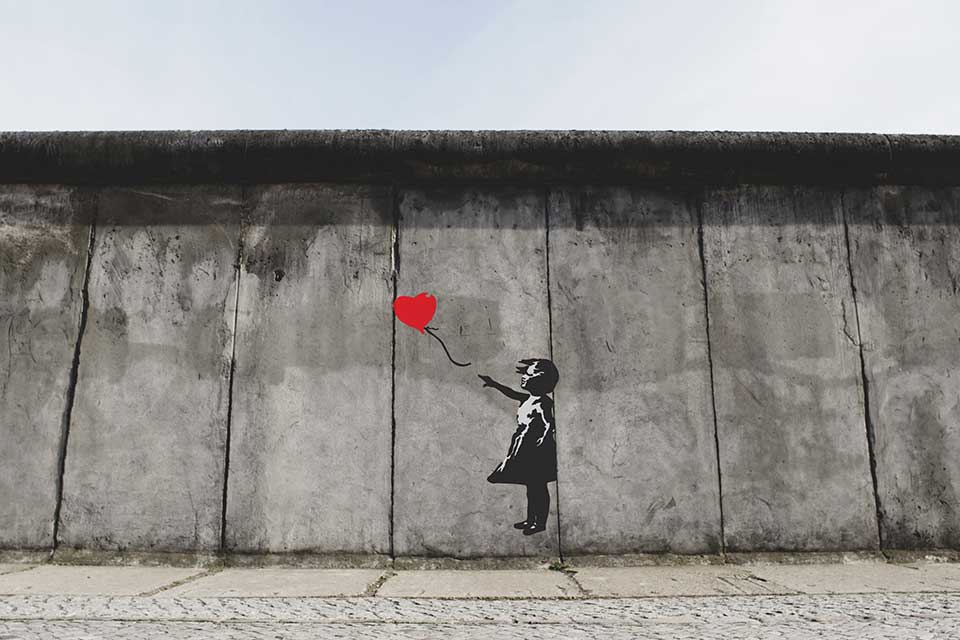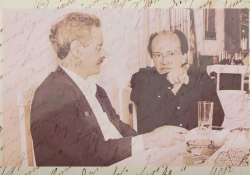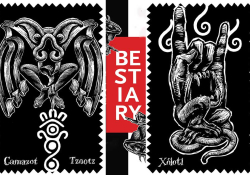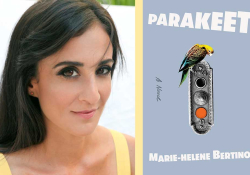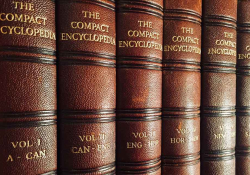Can You Imagine a Childhood Without Good Stories?
May 8, 2019
to Daniel Simon, Editor in Chief, World Literature Today
Dear Daniel,
It is with great pleasure that I write these words today to thank you and thank all the brilliantly creative leaders of World Literature Today magazine, and the leading and visionary Neustadt sisters, for the increase in the amount of the NSK Neustadt Prize for Children’s Literature.
In 2016 I wrote to WLT and to the Neustadt sisters requesting attention to this necessary matter. Some of my author friends had commented to me that the societal devaluation of writers for children, compared to “real writers,” is chronically substantial—that I was wasting my time by requesting adjustments to the NSK Prize amount.
Today, however, after three years from initiating that written request, magnificent and concrete progress took place. It has been announced for everyone to know: the NSK Prize will now award $35,000 rather than $25,000.
I celebrate the immense literary leadership of the Neustadt sisters and all the creatives of World Literature Today. And I celebrate, with everyone in the literary world, the progress of healing humanity and creating gradual positive change, no matter how big or small, through the tradition of literary “call” and “response.”
I also dedicate this moment of celebration to reminding anyone who is reluctant to speak up in the direction of necessary change: Drop the word that you hide in your heart into the water of life. A ripple will begin and you will never know where it will reach. Your words affect the world powerfully, even if you write them while trembling of fear.
Today, with a tremble of joy, and with much gratitude to WLT and the Neustadt sisters, I share the letter that I wrote three years ago.
Thank you for hearing my words.
Ibtisam Barakat
* * *
July 29, 2016
to RC Davis-Undiano, Executive Director, World Literature Today
and Daniel Simon, Editor in Chief, World Literature Today
A Proposal for Increasing the Amount of the NSK Neustadt Prize for Children’s Literature
Dear RC and Daniel,
I hope this finds you well.
I have been thinking about contributing this piece to World Literature Today for three years. And now I wrote this letter to the editors and the Neustadt Prize trustees! I think the world needs to be thinking about how most things related to children and childhood are so marginalized.
Please tell me what you think, because what you think of this issue matters to me very much.
With best regards,
Ibtisam
*
Dear esteemed Editors of World Literature Today magazine,
Dear esteemed Neustadt Sisters,
First, warmest greetings!
I wish to thank you for being among the energetic leaders who uphold the vision of connecting humanity by the beauty of the literary word.
WLT and the Neustadt sisters work together to award the Neustadt Prizes, two of the most prestigious prizes that celebrate authors of international literature.
I was honored to participate as one of the jurors of the NSK Prize in 2013. My nominee, poet Naomi Shihab Nye, won. Participating in that journey, from start to festivities, was one of the highlights of my creative career. However, since that time, I have been thinking about a proposal that I feel is necessary. I hope that it will meet with your thoughtful consideration.
Writing this proposal now has been prompted by the fact that for the past eight years I have been working on a book that was completed this summer and is forthcoming from Farrar, Straus and Giroux. My book will be published for young adults. It could easily be published for grownups also since it is a coming-of-age memoir. But I have been choosing to write mainly for young readers in two languages because I see the great need for investing in young readers in all languages of the world.
My question to you regarding the Neustadt Prizes, both the prize for writers of adult literature and writers of literature for young readers: What is the logic behind awarding international authors, poets, and playwrights who dedicate their lives to writing for adults a prize amount that is twice the amount awarded to writers who dedicate their lives to writing for children and young adults?
The concrete reality of the writer’s life in general is that the writer for young adults has only twenty-four hours in her day, exactly the same number of hours any other writer has, or will ever have.
The writer for the young, however, concerns himself with a highly marginalized group around the world: children. This author gives voice to the most silent group that has ever existed, by virtue, or perhaps by lack of virtue, of the traditional perspective that sees “childhood” as a shortcoming of the human being, rather than as the most formative life stage of all human life on this planet.
A rich and healthy childhood means the strong likelihood of a rich and healthy adulthood. A poor and unhealthy childhood means the strong likelihood of a poor and unhealthy adulthood. The effect of childhood events on the quality of a person’s following years is well established by a large body of research on human development.
One only has to examine one’s own early life for the lasting effects of childhood to keenly notice this reality. But childhood, and all that is related to it, continues to be largely marginalized.
This marginalization can be found in many areas of behavior around the world: For example, the teacher of children receives less compensation for her work than the teacher of college students. The amount of energy expended and the creativity required, and the daily commitment needed, are the same, if not more in favor of the teacher of children whose concern is meeting young people’s developmental needs.
History reveals huge inequalities and lesser appreciation for all adults who choose to invest in careers related to children, and especially in writing for children. One must ask if the fact that many women are prominent figures in this field is linked to the long-standing bias, since women continue to face marginalization everywhere, in spite of the many hopeful developments our times have been witnessing.
I believe that this concern must now be brought to the collective conversation toward a much-needed adjustment, and progress. I hope that sooner, rather than later, any and all inequalities will be fully remedied. The specific bridging of the differences in compensation for writers for adults and writers for children can help many adults see that working with children, or for children, is a worthwhile calling, rather than “what one does if one cannot do something better.”
Therefore, I respectfully propose that the NSK Neustadt Prize for Children’s Literature be increased to the same amount of the regular Neustadt Prize ($50,000) from the current amount of $25,000.
If this is not possible, I propose that both prizes receive $37,500, in order to express equal appreciation and support for all great literature regardless of the target audience a genre of literature aims to reach or the segments of the society it serves.
When the highly generous trustees, and the highly thoughtful managers of the Neustadt Prizes, support and grant this necessary and would-be-leading change, other prize-awarding organizations are likely to be inspired to do the same. Corrective leadership requires immense courage and a broad perspective that spreads with its spirit the light needed for a new day to come. This kind of leadership by action is how our world can continue to be healed.
If you have any doubts that this call for your leadership in creating more equality and change is necessary and timely, please consider the following:
Can you imagine a childhood without good stories? Can you imagine the poverty of a childhood without good stories written by talented writers, or spoken or sung by masterful storytellers? We humans cannot live without good literature across the life span, but the foundation of our desire to read and write is created, or hindered, in childhood.
The writer for young readers is the best ally and the biggest support of the would-be great writer for adults. The great writer for adults was the child eager to find a good children’s book. Because of that book, she or he grew to love reading and writing and eventually won the Neustadt Prize for adults. Therefore, writing for children can be seen as even more important than that for adults, because through children’s literature, and during childhood, word artists could reach and teach young people to think creatively, to think for themselves, and to think of others too.
During childhood, word artists have a chance to give children the strong permission to grow and include, to create and dream, to lead and be kind, taking us to an ever-improving future.
Without a great investment in childhood and the books written for children, which means investing greatly in the people who choose to do that necessary work, many minds can learn early to judge poorly, to fear, to hate and exclude, to remain timid, and to consciously or unconsciously perpetuate dangerous social ills. To read great books later on in life as adults is often too late for accomplishing the kind of change that could be started and unleashed in the beginning.
Because childhood unites all of humanity, children’s literature is potentially one of the most crucial remedies for many of this world’s contemporary social problems. In childhood, a young human being easily sees that other people who are different are exciting and interesting. Unless taught otherwise, the human child—by nature courageous and inquisitive—often wants to know the worlds of others rather than be afraid and negatively judgmental of them.
One only need read any newspaper front page any day of the year, in any country, to know how many of today’s adults around the globe must have grown up with a deficient picture of themselves—a picture that does not show an adult person’s potential for great contributions to the world, including the responsibility to be thoughtful, creative, generous, and genuinely interested and kind toward our home planet as well as all the members of the human family.
It is literature that has the potential to make us know our home and our family members of humanity everywhere. Children’s literature begins that journey. The writers for children have no easy job, and their work cannot be done with half measures. Half the prize amount sends a message that says “not good enough,” a message no child, or anyone caring for children, should ever hear.
I thank you very much for reading my words and for your time. And I offer this proposal with immense appreciation for all your wonderful efforts and your contribution to the world of literature and the world at large.
Signed respectfully,
Ibtisam Barakat
Author, Poet, and Winning Juror of the 2013 NSK Prize
Editorial note: The January 2014 issue of WLT included a cover feature celebrating Naomi Shihab Nye winning the 2013 NSK Prize, with a tribute essay and poem by Ibtisam Barakat.

